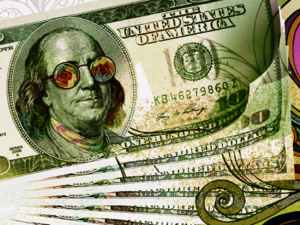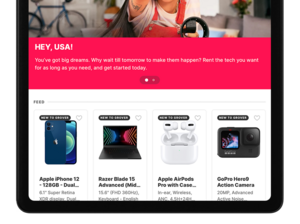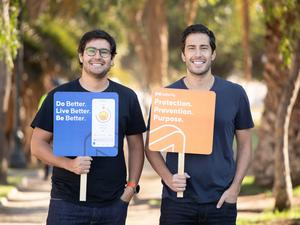
There were more "unicorn" technology companies than ever in 2021, when the number of private ventures valued at $1 billion or more surpassed 1,000 for the first time.
But not all unicorns are created equally.
"I think the term 'unicorn' has become popular to the point that it's lost its true value," said Claudia Duran, managing director of Endeavor Miami.
Endeavor Miami, founded in 2013, is an organization that mentors and accelerates high-growth ventures in South Florida. It's the first U.S. affiliate of Endeavor, a global nonprofit that has advised and helped scale more than 1,000 ventures in 37 markets across the world.
Venture funding soars
Tech startups raised a record $621 billion in venture funding globally in 2021, according to CB Insights, nearly double the amount raised the year before. South Florida raised $3.9 billion during that time.
Valuations for private companies swelled due to that influx of investor capital, Duran explained. But that may change in 2022.
The Federal Reserve recently suggested it could raise interest rates for the first time in three years in an attempt to tamp down on inflation, sparking a sell-off of tech stocks. Tech companies are often unprofitable, so higher interest rates could reduce returns for investors with money in businesses that aren't expected to rake in real earnings anytime soon.
Popular companies such as Zoom (Nasdaq: ZM) and Facebook parent firm Meta (Nasdaq: FB), which have seen their share prices drop this year, are among the casualties. According to The Wall Street Journal, venture capitalist investors report that many deals are being renegotiated at lower valuations as a result.
Beyond valuations
It's all the more reason why investors shouldn't be seduced by enormous valuations when investigating a startup, Duran said. After all, a dollar figure alone is not indicative of whether a venture can successfully grow.
More than a handful of once-buzzy ventures with $1 billion-plus valuations – think Quibi, the short-form streaming platform that shut down six months after going live – have crashed and burned.
"Very few startups actually make it to the finish line with solid returns," Duran said. "When you go deep down and analyze you have to ask: Will this business add value to consumers? Does it have a mission and leadership team capable of seeing this through?"
She named Plantation-based pet website Chewy (NYSE: CHWY), which went public after being acquired by PetSmart for $3.3 billion, as an example of a legitimate unicorn. Memic innovative Surgery, a Fort Lauderdale medical device firm that is among Broward County's top-funded private companies, is another contender. Last year, the company announced it will go public in a merger that values Memic at $1 billion.
Duran's advice for founders who aim to build the region's next true unicorn? Focus on creating a scalable business plan and a top-tier team before accepting huge investor checks.
"Be true to the 'why' that motivated you to build the businesses and make sure you're creating something that can truly serve your customer," she said.
For more stories like this one, sign up for Miami Inno newsletters from the South Florida Business Journal and the American Inno network.








